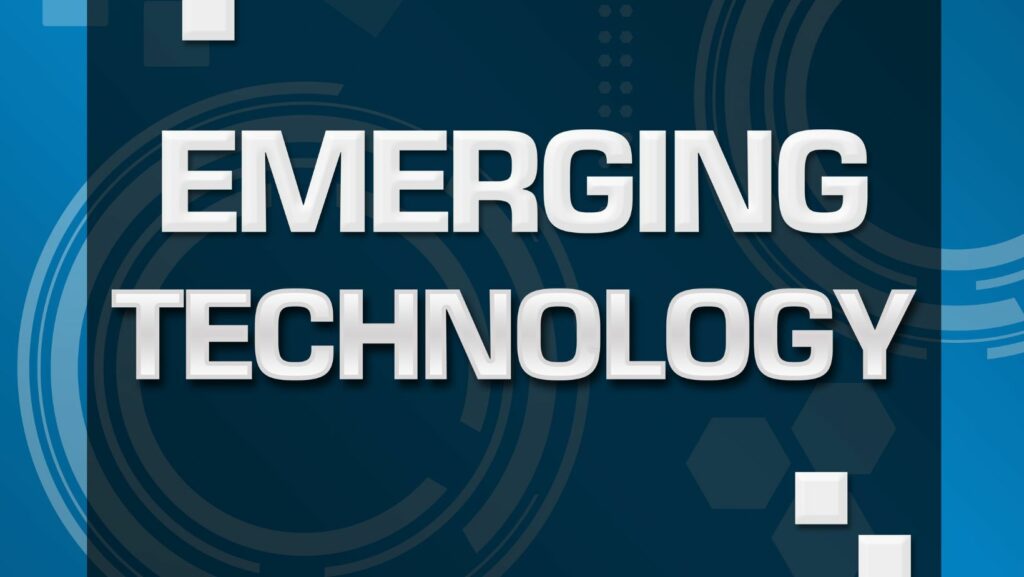In a world that’s constantly evolving, it’s impossible to ignore the role of emerging technology. It’s the driving force behind our rapid societal and industrial transformations, shaping the way we live, work, and communicate. But what exactly is emerging technology, and why does it matter?
Emerging technology refers to technologies that are currently developing or will be developed in the next five to ten years, and which are expected to substantially alter the business and social environment. These include fields such as artificial intelligence, robotics, virtual reality, and more.
What is Emerging Technology

Gaining a thorough grasp of emerging technology implies comprehending its elemental components, the processes involved, and its potential impact. Emerging technologies, often encapsulating advancements like artificial intelligence (AI), machine learning, blockchain, and virtual reality (VR), are in varying stages of development. For instance, while AI and machine learning are already transforming industries like finance, healthcare, and logistics, blockchain, and VR, are still finding their feet with fluctuating adoption levels from one industry to another.
Crucially, the awareness that these technologies aren’t just standalone entities is essential. Instead, they intertwine and interact, enhancing and amplifying each other’s influence. For instance, AI’s analytical capabilities are significantly boosted by machine learning’s pattern recognition strengths.
In getting to grips with these technologies, one not only acknowledges their potential impact on industry and society but anticipates mitigating factors and challenges. It’s a process that calls for continual learning, because the only consistent aspect of emerging technology, paradoxically, is its constant state of flux.
Impact of Emerging Technology

Emerging technologies, namely artificial intelligence (AI), machine learning, blockchain, and virtual reality (VR), leave indelible footprints across multiple sectors. AI and machine learning generate exponential shifts in sectors like healthcare, bolstering accurate diagnoses, and enabling personalized treatments. They’re central to efficient operations in finance, enhancing fraud detection, and improving customer service.
Similarly, Blockchain technology embodies a paradigm shift in secure data transfer, gaining currency in supply chain management and finance. For instance, it’s instrumental in ensuring transparency and traceability in goods’ movement across global networks. Meanwhile, VR ushers in innovative ways to interact with digital environments, finding a stronghold in entertainment, education, and training. However, it’s paramount to acknowledge potential challenges including data privacy issues and ethical problems, ensuring safeguards are in place. It underlines the reality that the future of emerging technology is as much about anticipating problems as embracing its transformative power.
Challenges Associated With Emerging Technologies

Emerging technologies, although powerful, bring several trials in their wake. In the pursuit of driving sector revolution, ingrained problems like data privacy concerns surface. AI and machine learning, for example, churn copious amounts of information every day. Yet, handling this data, ensuring its security, and maintaining user privacy poses a serious challenge. With blockchain, while it ensures secure data transit, it also raises questions about network reliability and scalability. VR, offering a novel digital interaction mode, grapples with creating realistic, immersive experiences without causing discomfort or dizziness. Dealing with these challenges isn’t optional, it’s essential. By addressing these issues head-on, the potential of emerging technologies can certainly be maximized.
Future Trends in Emerging Technology
Emerging technologies like AI, machine learning, blockchain, and VR are undoubtedly shaping the future. They’re not just buzzwords but are becoming integral parts of industries from healthcare to finance. Yet, they’re not without their challenges. Data privacy, network reliability, scalability, and user comfort are all hurdles that need to be overcome. It’s clear that the future of these technologies lies in addressing these issues, ensuring that their transformative power is harnessed effectively. As we continue to navigate this digital age, it’s these technologies that’ll lead the way, pushing boundaries, and transforming the way we live and work. So, let’s look ahead with anticipation to a future driven by these exciting, emerging technologies.

